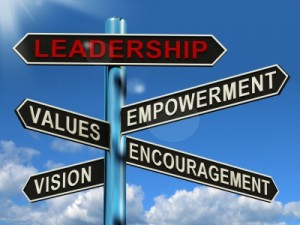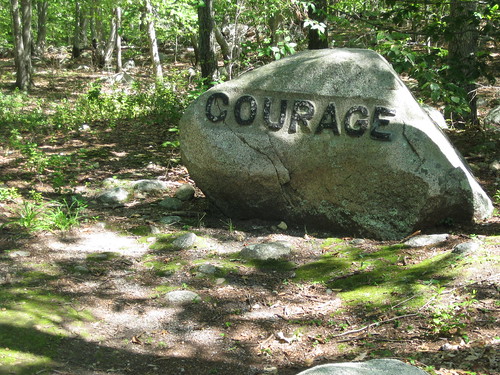Category Archives: Inspiring Yourself & Others
See it First Using Your Minds Eye
Do you recall a time in your life where you may have doubted yourself or ability to handle a situation?
Utilizing the imagination while formulating a plan or task can lead you to success.
Watch this video for tips on using your minds eye to envision success.
If you would like to learn more about building confidence, being authentic, and moving beyond old patterns that keep you from fully enjoying your life, check out my book, The Pinocchio Principle: Becoming a Real Leader, available at Amazon.com or BarnesandNoble.com.

Be the Light in the Darkness
Sometimes despite our best efforts, things go awry.
Be the source that raises the level of energy of those around you. Utilize Desire, focus and courage to help yourself and others.
Watch this video for tips on becoming the light in darkness for those around you.
If you would like to learn more about building confidence, being authentic, and moving beyond old patterns that keep you from fully enjoying your life, check out my book, The Pinocchio Principle: Becoming a Real Leader, available at Amazon.com or BarnesandNoble.com.

How to Embrace Your Brilliance (without becoming arrogant)
The lights are dimming and the crowd begins to hush.
Music blares from all corners of the dark, expansive room. A spotlight illuminates the stage and cuts a circle in the red velvet curtain that falls from the ceiling above. In front of that curtain are proud parents and antsy siblings squirming in their seats, eager to be entertained. And behind it are nervous school children with hearts pumping and nerves tingling.
Throughout their grade school years each of my kids have appeared in a variety of shows along with many of their friends and fellow students. They practiced for months. And I was one of a myriad of parents that toted children back and forth from rehearsal to rehearsal where the kids gradually perfected their acts and readied themselves for the spotlight. Finally their time would come.
As with every talent show, there were those who burst onto the stage with contagious energy and bright smiles, soaking up every ounce of the experience. And there were others who walked onto the platform and suddenly shrunk inside themselves, painfully aware that an entire auditorium of people were staring at them, watching and waiting expectantly.
I think every one of us has likely been in both categories at one time or another.
Maybe not in a talent show, or on any kind of stage at all. But in our own everyday lives. In the theatre of our work, in the arena of our interaction with others — colleagues, customers, bosses, friends and acquaintances. Sometimes we rise to the occasion and we are present, effusive, bright and shining with enthusiasm and warmth. And other times, perhaps we sink inside ourselves — intimidated, nervous, awkward and doubtful.
In the latter scenario, there is no judge more critical than the one that lives in our own heads. Allowing it to hijack our attention, we quietly exit the scene while our bodies remain, vacant and taking up space. We nod our heads and smile, hear what others say and even comment sometimes. But we are far more engaged in an internal dialogue that has us believing we are not good enough, that we must be a little more of this or less of that. It has us planning and evaluating what we will say in response to a person who hasn’t even finished speaking, their words eclipsed by the roar of preoccupation going on between our own ears.
This is a dismal state to be in.
In the midst of all the cruel self-judging, that part of us that is brilliant and loving, warm and engaging in whatever way is uniquely ours is dismissed. Or perhaps disallowed. How could we let it come forth while we banter about in our heads that we need to be anyone other than who we really are?
At the variety shows, I really don’t believe the audience would judge a poor kid standing speechless or stuttering at the edge of the stage — but rather would cheer him on, showering him with beams of encouragement and love, silently wishing for him to loosen up, forget about the audience and have a little fun and just be himself. And perhaps it is that way in our arenas as well.
When we withhold ourselves, we cheat others of knowing the brilliance of who we really are.
But before we cheat them of it, we cheat ourselves. Many of us are taught and conditioned to be humble and avoid the appearance of arrogance. But we confuse arrogance with self-love, which is actually a prerequisite to humility. True arrogance is the product of someone who has no self-love, and tries desperately to convince others he is superior and worthy of the very thing he denies himself of.
True humility occurs when we embrace our own greatness and love ourselves.
A healthy self-love keeps us from having to worry about how we are coming across or what others think of us, because we already know we have value. In embracing our own value and allowing our brilliance to shine, we light the way for others to do the same.
It is this brilliance that will transform our world.
It brings with it the creativity and ingenuity to rise up to our challenges and allow us to do things we never thought we could. Far from being self-absorbed, sharing our brilliance in this way is the most generous and loving thing we could do for others.
But before we can do it for them, we must do it for ourselves.
So the next time you find yourself engaging in a vicious dialogue that has you believing you are anything less than who you are and keeps you from bursting onto the scene, recognize that for what it is — an old pattern that isn’t doing you or anyone else any favors. The less you feed that dialogue, the less “self absorbed” you are and the more generous you can be with your brilliance.
The audience begs you: come onto the stage, forget that you are being watched, have a little fun being who you really are — and show us all how to truly shine.
How to Stay Confident Around People Who Intimidate You
Most of us have people in our lives that for whatever reason lead us to temporarily lose access to our fully functioning brains. You may find that in their presence, words suddenly escape you. Or worse, they seem to pour out of you like diarrhea or projectile vomit, leaving you to feel even more uneasy. Perhaps you unexpectedly develop a stutter. Maybe you become unusually clumsy, or suddenly fixated on how large your nose (or some other part of your body) feels. These are the kind of things that happen when we are intimidated by someone.
People intimidate us for a number of reasons.
Intimidation can be triggered by someone with an explosive temper, or a person who tends to be critical of you. It could come on when you are around someone you really want to be liked by. And sometimes it happens when you are in the presence of people who seem to have all the things in life that you do not, from stunning physical attributes to lavish material possessions to prestigious job titles. But there is one common denominator present when you find yourself intimidated by another person and believe it or not, it has very little to do with any of the previous factors I mentioned.
The root of all intimidation lies in what you are believing about yourself in any given moment.
It is easy to conclude that the problem exists somewhere out there.
You might think it’s the way someone looks at you, or responds (or doesn’t respond) to you. And you might even believe – if so and so wasn’t in my life, I would be so much more confident and self assured. But the problem isn’t other people – not even people who may intentionally be trying to tear you down a notch. You may think their hurtful messages are to blame.
But the trouble isn’t hearing hurtful messages from others.
That wouldn’t explain why people are intimidated by those they envy or really want to be liked by – who may never actually say anything at all. The reason people intimidate us is that in their presence we are telling ourselves that we are simply not good enough, attractive enough, rich enough, powerful enough, articulate enough, smart enough, skinny enough, athletic enough – or ENOUGH altogether.
And worse, we are believing it.
When you believe you’re inadequate, you will cut yourself off from your brilliance. Sometimes it’s just a little kink in the hose that still allows a small portion of your competence or grace or talent to come through. And other times it’s just an all out blockage. It’s not that all those wonderful things about you have gone away. You just temporarily have trouble accessing them. And then you may panic and find that things get even worse.
So how do you remove the blockage?
What can you do to avoid becoming intimidated and losing confidence?
Well, the interesting thing about intimidation is that the root of it is also the remedy.
When you find yourself going down Intimidation Street, you can stop and redirect yourself down a more positive path simply by becoming aware of and eventually changing your thoughts. I admit that this is much easier said than done. However, as with so many things in life, it gets better and better with practice.
Here are three ways to redirect your negative thoughts about yourself to something more positive:
(1) Think of someone in your life in whose presence you feel really good about yourself.
Go ahead and try it right now. See if you can place yourself in that person’s presence and feel the way you do when you are together. You might find that you are sitting up straighter and holding your head higher just at the thought. Know that when you are with that person, you are the same you that you are when you are with people who intimidate you.
See if you can envision being in the presence of someone who intimidates you while you are feeling the way you feel when you are around someone you feel loved and admired by. Imagine how much easier it would be to interact with others while you are in this state. Practice this in your mind often.
The next time you are around someone who intimidates you, use the exact same process.
Treat every interaction as an opportunity to build this muscle for yourself. And before you know it, you will find that your behavior will become more consistently confident and self assured. You may also notice that the things that used to send you into a tailspin no longer really bother you.
(2) The next time you find yourself feeling intimidated, notice what you are believing.
Then ask yourself if it is really true. This may be difficult to do when you are standing in front of someone, so if it’s easier you can wait until the moment has passed. You may find when you reflect on the situation that you felt the way you did when you were a kid and realize that those feelings are no longer relevant.
You may be believing that there is something you need to do or be to win someone’s affection or approval when in reality you just need to relax and be yourself and let go of needing so much to be liked by others. You may be believing that the other person is thinking something negative about you that is purely conjecture you are poisoning your mind with.
When you notice and begin to challenge your assumptions, they lose their hold on you.
It’s kind of like being in a haunted house after the lights have been switched on. You can go back there when it’s dark again, but it’ll never scare you the way it might have before.
(3) See if you can shift your focus from what you think you need to what you can give.
As I mentioned before, we get intimidated when we feel we are lacking in some way. And then we tend to act in ways that will allow us to get what we think we need to feel better. Often that comes in the form of someone’s approval or affection. Think of what kinds of things you think you need from others in order to feel more confident. Is it a smile? Is it a compliment? Is it someone paying attention to you? A little appreciation or support?
See if you can find a way to give to someone else that which you believe you need.
And do it in such a way that you are not expecting anything in return other than to be of service to another human being. In other words, don’t give to get. Give because it makes you feel good. When you do this, you will find yourself reconnected with the reserves that you are most in need of. Because when you give something – even if it is something you think you don’t have – you realize that by the very nature of giving it to others, you become an abundant supply.
“Those who bring sunshine to others cannot keep it from themselves.” – Anonymous
If you would like to learn more about building confidence, being authentic, and moving beyond old patterns that keep you from fully enjoying your life, check out my book, The Pinocchio Principle: Becoming a Real Leader, available at Amazon.com or BarnesandNoble.com.
Image courtesy of Marcus74id at FreeDigitalPhotos.net.
How to Develop More Confidence
Every day offers us a new challenge and an opportunity to see what we are made of.
Some days more than others. Think of all the resources you have at your disposal to rise up to these challenges. You have your intellect, style, wit, humor, strength, resilience, patience. You have friends and colleagues, family members, and other special people in your life. You have your possessions, your resources, your health, your savings, your home.
When you get down to the bottom of things, one of your most valuable resources – which allows you to enrich every other aspect of your life, is the way in which you view yourself and what you believe you are capable of. This one thing plays a monumental role in determining your fate, because it drives your actions and responses to everything that happens to you.
This quality is confidence.
You know it when you see it, don’t you? A confident person walks into a room and doesn’t have to say a thing. They wear their faith in themselves and their abilities like comfortable clothing. They do not need to be arrogant or assuming. They are at ease in their own bodies.
What exactly is confidence? And how do you get it?
Some would say confidence is being able to show others that you know what you are doing, that you have what it takes to succeed, that you are in control. Others speak of confidence from the standpoint of having courage to do things that require a high degree of skill, knowledge, strength, coordination, or that may entail some degree of risk. Still others would say confidence is the ability to inspire trust in others. Merriam Webster defines confidence as “a feeling or consciousness of one’s powers or of reliance on one’s circumstances” and “faith or belief that one will act in a right, proper or effective way.”
Confidence is something that must come from the inside out.
What do I mean by that? Every day we face challenges and opportunities that allow us to exercise confidence. We can do things today that we were unable to do last year, or maybe even last week. When we get to a point where we no longer question our abilities and simply execute the task at hand in a manner that is fitting to the situation, one could say we are acting with confidence.
Exercising confidence does not require that anyone else believe we know what we are doing, or even that they witness us doing anything at all. It requires us to do what must be done at any given time, utilizing the resources at our disposal and calling on our own strengths, ingenuity, and discernment to do it.
It is easy, however, to fall into the trap of trying to gain confidence from the outside in.
We often go about our tasks with an eye on the perceptions of others and allow their reactions to determine our confidence level. A positive response increases our confidence, and a negative one decreases it. When we repeatedly engage in behavior like this, we will subjugate our ability to perform and stunt our inherent talent by interrupting its natural flow.

Imagine yourself standing in a room trying to balance on one foot while holding the other in your hand and looking up at the ceiling. Now add about fifteen to twenty people to the room who are trying to do the same thing. If you worry about whether you look good and imagine that everyone is staring at you, you will lose your balance (and your confidence). If, however, you center yourself and focus on the task at hand, you will find your core strength and a sense of calm, and you will achieve your goal. It may take awhile, but you will get there.
“It is very easy in the world to live by the opinion of the world. It is very easy in solitude to be self-centered. But the finished man is he who in the midst of the crowd keeps with perfect sweetness the independence of solitude.”
~ Ralph Waldo Emerson
This phenomenon becomes more complex when we assign value to others’ perceptions.
The opinion of someone we highly regard may weigh more heavily than someone we don’t. And strangely, getting validation from someone who doesn’t seem to think well of us can have more significance than hearing praise from people who are our biggest fans. Why? I think we tend to focus our attention on that which mirrors our own thinking. Criticism stings the most when it amplifies our own self doubt. And when we find ourselves craving acknowledgement from others, it is likely because we are withholding it from ourselves.
As we go about trying to win approval, we allow others to define our sense of self.
And as a result, we grow ever more unaware of the treasure that sits in our own back yards. We leave our true fortunes to seek things that glitter and fade. The harder we try to win the confidence and validation of others, the further we will get from achieving it and the more deeply buried our inherent riches become.
Rather than acknowledging evidence that is all around us which confirms that we are competent, creative, talented, worthy and capable of achieving great things, we waste our energy focusing on what we believe is lacking. As a result, we pay attention to data that validates our feelings of inadequacy, which leads us to act in ways that sub optimize our potential. This further erodes our confidence and we risk locking ourselves in vicious cycles of deteriorating performance and eroding self assurance.
Confidence is an inside job because we cannot expect others to believe in us if we do not believe in ourselves.
To be truly free, we must become independent of the opinion of others.
This does not mean we stop seeking feedback or valuing input and suggestions. It simply requires that we learn to become unattached to others’ approval and instead draw upon our own inner reserves. When we stop seeking validation, we find our centers again and learn from our own experiences and inner wisdom.
Practice and simple adjustments allow us to find our zone, listen to our intuition and slowly perfect our game. Becoming quietly confident, we lose the need to prove that we are right, defend our honor or value, and impress others. We simply do what is ours to do in any given moment and judge our success on the merits of the work itself.
When we truly go within to discover and unearth our own value, a funny thing happens.
Over time, we will come to be surrounded by people who mirror our own positive assessment of ourselves. Criticism may still come, but it will no longer have the sting it once did. Void of the emotional charge, we can take feedback for what it is – data that helps us to see something we may have missed, so that we can make a course correction if necessary.
No longer basing our value of ourselves on what others think of us, we can refocus the energy we spent seeking validation into helping others recognize their own value. In modeling this behavior, our increased confidence in ourselves engenders confidence both in and from others, and we can truly lead.
When we have confidence in ourselves, we regain a sense of power and faith.
No matter what happens in the uncertain world around us, we know we have what it takes to rise above our challenges and turn them into opportunities. We act in ways that show others they too have the ability to shape the world around them by starting with themselves.
“As soon as you trust yourself, you will know how to live.”
~ Johann Wolfgang von Goethe
This article contains excerpts from my book The Pinocchio Principle: Becoming a Real Leader now available in both ebook and paperback formats on Amazon.
Yoga image courtesy of arztsamui / FreeDigitalPhotos.net.
A Question Worth Considering
 We stepped out into the crisp January air, her small, sweet hand wrapped in mine. She smiled with her whole body as we began our walk to the park. Each of my steps was two or three for her. We paused often to smell flowers and watch bugs zig zag across the sidewalk. The sun’s rays danced on the leaves of the elm trees above us and filtered softly onto our shoulders. The birds showered us with song.
We stepped out into the crisp January air, her small, sweet hand wrapped in mine. She smiled with her whole body as we began our walk to the park. Each of my steps was two or three for her. We paused often to smell flowers and watch bugs zig zag across the sidewalk. The sun’s rays danced on the leaves of the elm trees above us and filtered softly onto our shoulders. The birds showered us with song.
It was a brand new day. A brand new year, for that matter. And we were seizing it.
My morning with my three year old niece was a liberating one. It took us twenty glorious minutes to make our way a few hundred yards from the house my husband grew up in to the old elementary school grounds down the street. When we got there, Lucy stretched her arms out like wings and ran joyfully across the playground as the wind playfully tossed her wavy blond locks and almost seemed to lift her off the ground. She was freedom personified. Sheer joy. Exuberance.
And I thought, this is what I want more of in my life.
Maybe it was the week of vacation that preceded our little walk that allowed me to forget about all the thoughts that had furiously competed for my attention before we left for our trip. Perhaps it was being a few hundred miles away from home and all the things that needed to be done – tasks yet to be finished and those yet to come. Or maybe it was the sheer inspiration of my beautiful little companion that allowed me to be fully and completely present, immersing myself in each moment and allowing it to unfold without any interference on my part. I felt alive. Vibrant. Happy.
We tottered on balance beams, skipped across hopscotch squares, and visited a coop of chickens, watching them peck at the ground and contemplating what each bird’s name should be. But the highlight of our little jaunt was the tall, spiraling slide that crowned the jungle gym. Lucy had decided she wanted to ride down on my lap. We got half way up and stopped. She looked up to our destination, and then down from where we had started and said, “That’s high.”
“Yes, it is sweetie,” I replied. “We don’t have to go up there if you don’t want to.”
She looked at me for a moment and then wrinkled her brow with determination and resolve. “I want to slide!”
“OK then. Here we go…” We climbed the last couple of steps and squatted onto the platform. Lucy sat tall on my lap, brimming with courage and delight. “One, two, three!” As we let go and spiraled down the slide, the squeal of her laughter brought a wild and uninhibited smile to my face.
And I thought again, this is what I need more of in my life. Maybe this is what we all need more of in our lives.
I know. It’s easy for a three year old to experience sheer joy and bliss at the very prospect of being alive. They have no responsibilities, no bills to pay, no people depending on them. They have yet to experience heartbreak, disappointment, and disillusionment. And let’s face it – our adult lives are a lot more complicated than a day at the park playing hopscotch and watching bugs and chickens. I still can’t help but think about it.
Now, back at my desk, staring at my Outlook calendar, I can still feel the childlike wonder and euphoria of that day. It begs the question, how can I bring more of that to my life? To my work? To the world?
This question has begun to deepen and grow roots. It has taken on a life of its own. It peeks out from my computer screen and beckons to me. It lands softly in my mind as I drive to and from appointments. It jumps out of file folders and onto my desk. It takes a seat at the table when I meet with my clients. And it brings with it more questions…
What if we could somehow strip our daily activities of the assumptions and heaviness they have accumulated over the years and approach things with the same sense of curiosity and delight that little Lucy did on that beautiful January morning?
Could we rediscover and ignite our passion for living in all the many areas of our lives – including the countless hours we spend at work?
Could we find a way to mute the thoughts that keep us from being totally present with people in our lives so that we could really be with them?
Could we let go of our preconceived ideas of how things are supposed to be and allow them to unfold the way they need to, trusting that we will summon whatever resources are necessary to deal with things as they come?
Could we respond to situations that push us out of our comfort zones with the fortitude and tenacity that Lucy displayed on the towering spiral slide?
Imagine what life would be like if we did… How much more joy we would experience. How creative we could be. How courageous and resilient. How our relationships would deepen and grow. How meaningful our work would become.
I, for one, think it’s a question worth considering. And just maybe, the very attention we put on the question will begin to illuminate the answers we need most.
I’d love to hear your thoughts.
 For more on reconnecting with your childlike sense of wonder and joy, check out my book The Pinocchio Principle: Becoming a Real Leader now available in both ebook and paperback formats on Amazon.
For more on reconnecting with your childlike sense of wonder and joy, check out my book The Pinocchio Principle: Becoming a Real Leader now available in both ebook and paperback formats on Amazon.
Photo courtesy of Jens Schott Knudsen.
Don’t Sell Yourself Out
The story of the Chinese bamboo tree that I wrote about in my last post is one of patience, perseverance and faith. I was moved when I heard it and eager to share with others who would also appreciate and enjoy it. Upon sharing the story with one of my dear friends, she relayed an equally inspiring tale to me. And two weeks later, out of the blue another of my close friends said there was a story she just had to tell me. To my amazement, it was the very same one my first friend shared.
I believe it is no accident when you encounter something numerous times – especially when it has meaning for you. And that is why I want to pass along to you the story I was told.
In the far east, there lived a boy named Ling who loved to garden. His “green thumb” led him to surround himself with plants that he lovingly tended to and enjoyed. One day, he heard that the emperor, who had no sons of his own, was seeking a successor and had asked for all the boys of the village to gather in his courtyard. Ling’s mother encouraged him to attend.
The emperor addressed the young boys, giving each of them a seed. He instructed them all to plant the seeds and return to his palace in a year with what they had grown from this seed. He explained he would judge their results and proceed to pick the next emperor.
Ling took his seed home and potted it. He proceeded to nurture and care for it with as much love as he did all his other plants, tending to it daily. After about three weeks, the other boys began talking about their seeds and the sprouts that had begun to grow. Ling’s pot remained empty. He gave it extra care and nutrients and spent even more time with it. After a few more weeks, he moved it to a sunnier area, and then a few weeks after that back out of the direct sun. Still nothing.
Months went by with still no growth and the other boys began to mock Ling and laugh at him. Some felt sorry for him. Ling was frustrated and confused. He knew how to care for plants. He had done everything he could. And still, nothing had happened with his seed. Soon the year was up and it was time for the boys to reconvene to the palace courtyard.
As Ling approached the courtyard, he couldn’t believe the greenery he saw around him. Boys on all sides of him carried in lush, vibrant plants – some of them flowering, others with long beautiful vines. Hiding in the shadows at the back of the gathering, he clutched his empty pot and felt shame wash over him.
Soon the emperor appeared. He surveyed the boys and their pots, smiling and admiring the prolific green leaves. When his eyes caught sight of Ling and his empty pot, the emperor ordered his guards to bring the boy to the front of the gathering. The others began to point at him and laugh. Ling was terrified.
The emperor silenced the room and asked the young boy his name. Ling replied, feeling his face flush with warmth. He felt like a failure and feared that the emperor might have him executed. But to his great surprise, the emperor took hold of his hand and raising it up announced, “Behold your new emperor. His name is Ling.” He went on to explain that all the seeds he had given the boys had been boiled and as such were incapable of producing any of the trees, plants and flowers that the other boys brought with them.
When I first heard this story, I thought it was simply about honesty. Ling was rewarded because he was the only one who had the courage to be honest. This is a great message in and of itself, but after hearing the story a second time and reflecting on it later, I began to realize that there is much more to this story than the importance of honesty.
 This story speaks to the fear within all of us that what we have is not enough – that who we are is not enough. We are conditioned to believe we have to look as good as or better than the next guy. Many of us spend a good part of our lives comparing ourselves to everyone else and doing whatever we can to stay in the proverbial game. We are constantly tempted to sell ourselves out and just go do or buy or imitate whatever the people around us do or buy or are like. We are led to believe – and often unwittingly propagate the illusion that not doing so is failure and defeat.
This story speaks to the fear within all of us that what we have is not enough – that who we are is not enough. We are conditioned to believe we have to look as good as or better than the next guy. Many of us spend a good part of our lives comparing ourselves to everyone else and doing whatever we can to stay in the proverbial game. We are constantly tempted to sell ourselves out and just go do or buy or imitate whatever the people around us do or buy or are like. We are led to believe – and often unwittingly propagate the illusion that not doing so is failure and defeat.
It might be the latest gizmo or style of clothing, or the fanciest car. Or it could be a way of doing business – marketing in a manner to generate a feeling of scarcity or urgency, emphasizing profits and growing market share over people and service. It could be a way of behaving within an organization – stomping on others to get ahead, or sucking up to people in power in an effort to rise through the ranks. All with the justification that everyone else seems to be doing it and that playing along is how you survive.
The lengths we go to in an effort to “measure up” and “get ahead” have us creating a lot of flash, but at the cost of substance, sustenance and even sanity. It never seems to be enough, and has us continuing to look over our shoulders and outside of ourselves to continue to keep up appearances. These efforts are almost always short lived. They require tremendous amounts of energy that leave us feeling exhausted and depleted.
Those who are wise can see right through these facades. There is a growing population that is increasingly ready and willing to say NO to this crazy way of living. Some of them are customers who will no longer tolerate empty promises and hype with no follow through, or service that leaves them feeling like an afterthought. Some of them are talent that have had enough with being treated in ways that belittle their creativity and desire for meaning and purpose in their work .
Some of them are entrepreneurs and executives who know there is a better way of doing business and are itching to create workplaces that allow people to come alive and do what they do best in a way that truly serves others. Many of these people are waiting and watching, nurturing ideas and dreams of a better way of living and leading, and gradually they are beginning to act on them.
Though Ling’s pot was empty, his heart was full. He didn’t allow the temptation to fit in and do as everyone else was to taint him. And though he was terrified at what the consequences may have been, he exuded the courage to stand in his truth. The qualities that allowed him to persevere through a year of waiting, wondering, questioning, and listening are the same that will make him a great leader – one that doesn’t rush to the easy solution. One who holds dear the importance of staying grounded and being strong and acting in alignment with a higher truth. One who inspires others to do the same.
Real leadership requires courage to say NO to relegating oneself to a life of complacency with ways of being that don’t ring true – even though it might be scary, and lead us to feel alone and judged and mocked as young Ling did. It requires faith in ourselves – and something bigger than ourselves – which will guide us to find what we seek through the small sweet voice within that has all our answers. And it requires vigilance and dedication to continue to listen to that voice instead of allowing it to be drowned out by the booming voice of ego echoed in the masses that have us believing who we are and what we have to offer is not enough.
Our reward is something that doesn’t come and go with the seasons , or that can ever be taken away from us. It is the cultivation of inner strength and wisdom that will allow us to meet any challenge with grace and to create opportunities that allow ourselves and everyone around us to share in the glory of living and leading inspired lives.
Don’t sell yourself out. You’re worth more than that. And it’s never too late to begin living your truth.
 For more on inspired living and leading, check out The Pinocchio Principle: Becoming a Real Leader now available in both ebook and paperback formats on Amazon.
For more on inspired living and leading, check out The Pinocchio Principle: Becoming a Real Leader now available in both ebook and paperback formats on Amazon.
Courage Image by David Bruce. Depressed man image by Master isolated images at FreeDigitalPhotos.net.
Not Seeing Results? Don’t Give Up.
 Do you ever feel like despite your best, most diligent, inspired effort, discipline and patience, you don’t seem to be getting anywhere? Maybe you have a vision that excites you – an idea of how something could be done differently, a creation you’d like to breathe life into, a way of improving your quality of life – or that of others. You plan, you prepare, you do the work. Repeatedly. But despite all that effort and persistence, you have little if anything to show for it.
Do you ever feel like despite your best, most diligent, inspired effort, discipline and patience, you don’t seem to be getting anywhere? Maybe you have a vision that excites you – an idea of how something could be done differently, a creation you’d like to breathe life into, a way of improving your quality of life – or that of others. You plan, you prepare, you do the work. Repeatedly. But despite all that effort and persistence, you have little if anything to show for it.
You might question yourself. Are you doing it right? Are you missing something?
You might get angry and try harder to control the outcome – double down your efforts, research extensively to figure out how to foolproof your plan, do whatever you can to MAKE it happen.
You may take your anger out on others. Why aren’t they cooperating? And how is it that everyone else seems to have it easier than you do?
You may question your vision. Is this really worth investing your time and energy in?
You might feel like quitting and moving onto something easier, more mainstream, with less risk or exposure. You gave it a good run. Maybe it just wasn’t meant to be.
But the idea of throwing in the towel feels even worse than continuing what seems to be a losing battle.
And try as you might, you just can’t shake the hold of that vision. It beckons. It haunts. It enchants – revisiting you in your quiet hours, whispering about what is possible.
What do you do?
 Have you ever heard the story of the Chinese Bamboo tree? It’s quite unusual. A farmer who plants these seeds will water, fertilize and tend to them daily. After a year of care and nurturing, the ground looks the same way it did when the seeds were planted. Another year will pass as the farmer continues his efforts, with no seeming growth at all. A third year of care and feeding will go by. NOTHING. And then another year of watering, fertilizing and patiently waiting. Still nothing. In the fifth year, small sprouts will appear. And in the six weeks that follow, the little shoot will grow up to ninety feet tall.
Have you ever heard the story of the Chinese Bamboo tree? It’s quite unusual. A farmer who plants these seeds will water, fertilize and tend to them daily. After a year of care and nurturing, the ground looks the same way it did when the seeds were planted. Another year will pass as the farmer continues his efforts, with no seeming growth at all. A third year of care and feeding will go by. NOTHING. And then another year of watering, fertilizing and patiently waiting. Still nothing. In the fifth year, small sprouts will appear. And in the six weeks that follow, the little shoot will grow up to ninety feet tall.
What we don’t realize about these seeds – and our precious visions – is that while patience, faith and perseverance may not produce tangible signs of progress for quite some time, they work wonders beneath the surface, laying the groundwork for what will follow.
To sustain the towering height these trees grow to, the root system must be deep and vast. We too must have a strong inner foundation to ensure we have what we need before we can share it with others. So many of our efforts are a quest to prove to ourselves that we are worthy. We often mistakenly think that accolades, prestige, wealth and all that comes with success will allow us to feel strong and fulfilled. But that approach is backwards.
The “trappings” of success fade over time and are as easily toppled as a tree with no root system. If instead we start with a strong, grounded feeling of worthiness and appreciation for ourselves, we can extend our gifts to others knowing that we have all we need and that sharing it with others will only make us stronger – in the same way that bamboo continues to grow after it is harvested. This strength is cultivated over time, and often happens during the times of our lives that feel most barren. We endure disappointments, we try something and fail, we learn about who we are and why we are here. This is all growth that happens beneath the surface. And it makes us strong and resilient enough to stand tall, reach high, and do the work we have been inspired to do out of joy rather than necessity.
Visions worth working for often don’t come to fruition right away and timing is not something that can be controlled. When we try desperately to speed things up, we will often experience frustration, and feelings of desperation that may lead to anger and/or withdrawal. Just as we cannot peel rosebuds open or shorten the time it takes for a caterpillar to become a butterfly, we cannot rush the progress and transformation that happens with our visions and our very selves. Sometimes our efforts to speed things up actually delay progress, as when we get too attached to a certain course of action that interferes with the natural progression of things. This is analogous to digging up and replanting seeds that have not yet sprouted.
The “overnight success” we often hear about is more often than not the result of years of dedication, commitment, perseverance and faith that like the growth of the Chinese bamboo tree took several years to come to fruition. As you pursue your grandest dreams and visions, many will tell you that your efforts are in vain, that you do not have what it takes, that you should quit while you are ahead. And you may begin to question yourself as well. But as you weather these storms and continue to believe in and cultivate something that cannot yet be seen, you will ultimately be rewarded with seeing that which you believe. And it will enrich your life – and that of others in ways you may never have anticipated.
 For more on bringing your grandest dreams and visions to fruition and laying the foundation necessary to sustain them, check out The Pinocchio Principle: Becoming a Real Leader now available in both ebook and paperback formats on Amazon.
For more on bringing your grandest dreams and visions to fruition and laying the foundation necessary to sustain them, check out The Pinocchio Principle: Becoming a Real Leader now available in both ebook and paperback formats on Amazon.
The Desperate Anxiety photo courtesy of Naypong at FreeDigitalPhotos.net.
Bamboo Trees photo courtesy of S P Photography.
What is a REAL Leader?
 Often when I tell people that I wrote a book called The Pinocchio Principle: Becoming a Real Leader, they assume it must have something to do with ethics. It’s understandable, since the first thing most of us think of when we hear “Pinocchio” is a puppet whose nose grew when he lied. Pinocchio could easily be used as a metaphor for people who lie through their teeth while their proverbial noses grow. I can see why some might think The Pinocchio Principle is a commentary on the importance of honesty in leadership. And while being truthful to oneself and others is a vital part of being a “real” leader, the reason I picked Pinocchio as a metaphor goes much deeper than his nose.
Often when I tell people that I wrote a book called The Pinocchio Principle: Becoming a Real Leader, they assume it must have something to do with ethics. It’s understandable, since the first thing most of us think of when we hear “Pinocchio” is a puppet whose nose grew when he lied. Pinocchio could easily be used as a metaphor for people who lie through their teeth while their proverbial noses grow. I can see why some might think The Pinocchio Principle is a commentary on the importance of honesty in leadership. And while being truthful to oneself and others is a vital part of being a “real” leader, the reason I picked Pinocchio as a metaphor goes much deeper than his nose.
Pinocchio is the story of a puppet who longs to become REAL. Like Pinocchio, at our core we too have a burning desire to become real, to bring into creation the greatness that resides somewhere within us. We are born with these impulses — to give form to our distinctive blends of talent, energy, passion and style. We come into the world equipped with far more than we are immediately able to utilize or even comprehend. And though these rich parts of ourselves are always there, they have a way of becoming latent over time.
There are people among us who have found ways to tap that well, drawing forth bits of the magic we are all capable of. These are the people we love to watch and be around — who do what they do so well that it is an art. As they tap their inner reserves and unleash their own greatness, they inspire each of us to do the same. In this way, they are true leaders.
In Walt Disney’s rendition of Pinocchio, the puppet encounters a blue fairy who tells him, “When you prove yourself to be brave, truthful, and unselfish, Pinocchio, then you will become a real boy.” One could imagine what Pinocchio might have been thinking upon hearing these words. What are these things this fairy speaks of? How do I get them? What must I do? How long will it take? Where do I start? With the promise of a dream fulfilled, he endeavors to do whatever is necessary. And the odyssey begins. The twists and turns it takes are trials we can all relate to, and challenges that I believe are a part of our human experience.
The qualities that the Blue Fairy encourages Pinocchio to demonstrate are not things he must acquire. They are attributes he already possesses. But in order to activate them, he must endure a series of events that allow him to realize these qualities are there and to exercise them accordingly. In order to return to himself — his true self — Pinocchio must endure a journey of trials and tribulations that first lure him away from himself. And the same kind of drama seems to unfold in one way or another for each of us.
Every one of us has within us an animating genius, which yearns to take different forms depending on who we are. Real leaders could be defined as those whose animating genius longs to create something for the greatest good, which is ultimately accomplished for, with and through others. It has a keen ability to look around, see possibilities and utilize resources in a way that brings something into existence that benefits others, whether that is a family, a community, a non-profit organization, a corporation, or the world at large. To accomplish this, leaders have the distinct charge of working with others in a way that brings out their best — that allows those we can impact to find the animating genius within them and apply it in service of accomplishing a common goal.
 Many of us associate the primary meaning of “to lead” as directing something on a given course, or being in charge, and this can be one of the functions of leadership. But the essence of leadership is much more than this. The Merriam Webster Dictionary has the following entry as the first definition listed for the word “lead”: “a: to guide on a way especially by going in advance.” If one of the essential functions of a leader is to bring out the best in others, this definition would suggest that to do this, he or she must first bring out the best in themselves. This, in and of itself, is the very same odyssey our friend Pinocchio finds himself on: to discover and liberate within himself what is real— divinely inspired genius — and to courageously apply it in a way that is truthful and unselfish.
Many of us associate the primary meaning of “to lead” as directing something on a given course, or being in charge, and this can be one of the functions of leadership. But the essence of leadership is much more than this. The Merriam Webster Dictionary has the following entry as the first definition listed for the word “lead”: “a: to guide on a way especially by going in advance.” If one of the essential functions of a leader is to bring out the best in others, this definition would suggest that to do this, he or she must first bring out the best in themselves. This, in and of itself, is the very same odyssey our friend Pinocchio finds himself on: to discover and liberate within himself what is real— divinely inspired genius — and to courageously apply it in a way that is truthful and unselfish.
The Pinocchio Principle was written as a roadmap to help people bring to fruition their greatest dreams and visions and better navigate through the perils and possibilities along the way. Reading it will help you better differentiate what is true within yourself from the conditioning that would have you acting in ways that are inauthentic and self-defeating. You will learn methods for gaining clarity on your unique call to leadership and leveraging your experiences to prepare for something bigger. Navigational tools explored within the book will help you determine the extent to which you are on or off course and the direction you need to take next on your journey to becoming a real leader.
As you begin to recognize and prevent assumptions and beliefs that keep you from your greatest work, you will learn to utilize ego in service to spirit. With this vital partnership, the elusive promises of Pleasure Island that divert you from your truest fulfillment are easier to recognize and work through. And facing your greatest fears in the belly of the whale becomes a transformational experience that will reunite you with your own determination, courage and heroism. In the end, you will rediscover the power that lies within us all to create and live our dreams. You will also find ways to return to the quiet places within yourself that nurture and inform your greatest visions.
The ultimate odyssey is always that of self-discovery. Every challenge, every opportunity gives us a chance to learn more about who we really are and to utilize our inherent gifts in service to something greater than ourselves. When we give ourselves completely to the journey and find meaning in each step along the way, we will truly live. And through our example and the unique contributions we all have to make in the world, we will truly lead.
 Click here to preview or order your ebook version of The Pinocchio Principle: Becoming a Real Leader for Kindle. Don’t have a Kindle? No worries. Anybody can read Kindle books—even without a Kindle device—with the FREE Kindle app for smartphones and tablets. Click here if you prefer paperback.
Click here to preview or order your ebook version of The Pinocchio Principle: Becoming a Real Leader for Kindle. Don’t have a Kindle? No worries. Anybody can read Kindle books—even without a Kindle device—with the FREE Kindle app for smartphones and tablets. Click here if you prefer paperback.
A portion of the proceeds from The Pinocchio Principle goes to the Center for Humane Living, a remarkable organization whose vision is to inspire all people to live peaceful and compassionate lives while implementing a fully humanitarian agenda.
A Salute to Conscious Leaders
 I’m working with a few leaders in both large and small organizations – who are passionate about creating inspired workplaces.
I’m working with a few leaders in both large and small organizations – who are passionate about creating inspired workplaces.
They aren’t sure how to do it. They aren’t sure people will respond favorably. They aren’t sure it will work at all.
They want to break the unspoken, unwritten rules of organizations that say…
…that the version of yourself you bring to work is different than who you are at home
…that work is a place where you do what your boss says and don’t ask a lot of questions
…that you have to suck it up when what you are tasked to do doesn’t really jive with who you are
…that you have to keep your head down and just make it through the day, the week, the month, the year and collect your paycheck regularly enough to feed your family and make ends meet.
These leaders inspire me. They have come to a place where they know there has to be more to life than just going through the motions, getting through the day, doing what’s required, going home and turning on the TV until the next day comes. They want more for themselves and they want more for their people.
And a couple of them are in organizations that have some pretty traditional structures and old paradigms. Not intentionally designed to limit people, but born of cultures that despite the latest management trends and empowerment classes on possibility thinking and shared vision still reward command and control, lead to power plays and foster the idea that if you don’t watch your back you could get stabbed.
One of my clients was discouraged by his boss from getting too close to his subordinates because it could cause him to lose his “edge” with them. He was told he may not be viewed as a leader if his people know too much about him and see him as a real person with fears and dreams and idiosyncrasies and humor.
But he knows that isn’t the kind of leadership that will allow him to do what he wants to do in the organization he leads. He knows that won’t light people up. He knows that won’t foster trust. He knows that isn’t what makes people go the extra mile when they are already tired and beaten. And he’s sick of playing that game.
So he’s trying something new. He’s sharing more of himself. More of his vision. More of his hopes and concerns and experiences for better or worse. He is encouraging dialogue. He’s asking what people think and sticking around long enough to hear (and really listen to) what they have to say. He is helping them find ways to breathe life into their greatest ideas and visions. And he is learning to get out of the way and trade the illusion of control for embracing possibilities that lead people (including himself) to enter into and navigate through uncertainty.
Another of my clients is getting ready to engage his leadership team in ways that they aren’t used to. He wants to roll out a whole new paradigm of doing things. And he is quite aware that words like “increasing shareholder value,” “fostering excellence” and “exceeding customer expectations” – while good concepts, tend to make people’s eyes glaze over and dismiss what is being said as the latest corporate speak, rah rah, Dilbert like rant.
He realizes that he needs to get very clear about what he sees as possible for his organization and all the people in it. He needs to be able to distinguish what they are moving away from and moving toward and find out what they think is important and what it will take in order to get them there. He wants to encourage dissention and constructive disagreement.
He knows that if they don’t voice their concerns and questions and hesitations to him, they will do it with each other in a way that could invoke fear and resistance and squash the seeds of possibility as they begin to germinate and grow. He knows that a silent room doesn’t mean everyone agrees. He has the courage to delve underneath the surface to find out what’s really going on – even, and perhaps especially if it means they don’t agree with anything he is saying.
Another client heads up an organization that is already known as the very best at what they do. They have customers lining up at the door. They have been recognized in their community as the go to for what they do. They are well respected in their industry. And yet, they are burned out. They are overwhelmed and just trying to make it through the day.
My client feels things are falling through the cracks and important details are getting overlooked. He has run around fixing things as they break, preventing undesirable consequences and instituting practices that keep the organization profitable, efficient and effective. But his partners haven’t embraced them – in fact, in some cases they even harbor resentment.
He wants to create an inspired workplace. And he knows he cannot do it singlehandedly. But he realizes his partners aren’t inspired – and that no amount of talking at them will get them there. So he is slowing down and beginning to have authentic conversations with each of them. He wants to connect with them as people, to see what they believe in, what they are passionate about, what they want to create together, and what they think needs to be done in order to make it fly.
He is opening himself up to their criticism, their doubts, their worries and also hoping to hear about their dreams. He doesn’t know if it is going to work. He isn’t sure how to begin these conversations, or whether people will really engage with him. But he is willing to do it anyway.
And this is the essence of true leadership. Some call it conscious leadership. It is the ability to authentically engage with people in the workplace in a way that promotes shared value, meaning and purpose and leads them to work together in service to something greater than themselves. It requires courage, patience, faith, trust, intuition, and self awareness.
And I salute them.
Are you a conscious leader? Would you like to be?
I am dedicated to helping people lead consciously and partner with others in their organizations to do things they never realized were possible. I am passionate about working with people to bring their whole selves to what they do and to transcend the idea that work is a place where you pass the time until you get to go home and “really” live. My clients inspire me and I’m and honored to partner with them in their efforts. I now have a few openings. If you are interested in working one on one with me, visit https://dianebolden.com/coaching.html to learn more. When you are ready to move forward, contact me to schedule a complimentary coaching call.
My book, The PInocchio Principle: Becoming a Real Leader will soon be launched in ebook format on Amazon! Stay tuned for more details, or check out the paperback version.
Image courtesy of Stuart Miles at FreeDigitalPhotos.net


